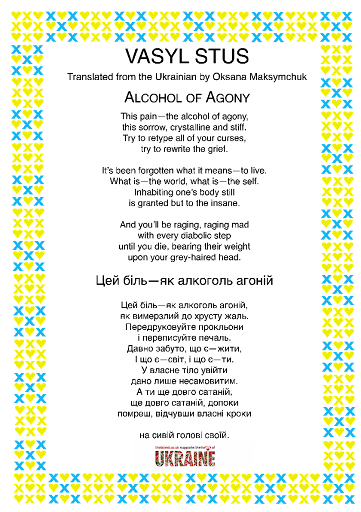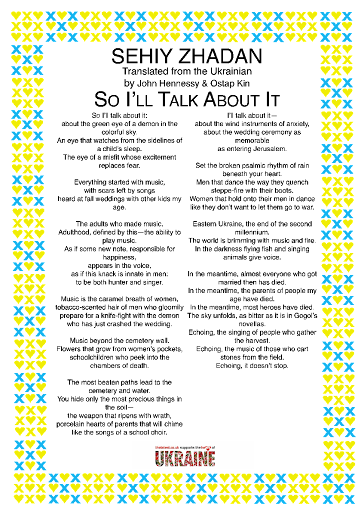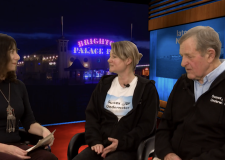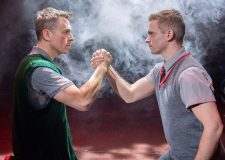Poetry for Ukraine with Love
A new show will air on Latest TV to amplify Ukrainian voices, raise money, and spread humanity for those who can only look on in horror.
Russia’s brutal invasion of Ukraine has stopped the world in its tracks. At the time of writing, reports of the casualties from a Russian air strike on a maternity ward floods the air waves. Thousands remain trapped in sieged cities, while the White House expresses concerns about the possibility of Russian chemical attacks. In the face of inhumanity, to many art is synonymous with frivolity. To others, however, it might be the only way forward.
In an effort to raise awareness, work with Ukrainian TV and Radio and raise funds, Latest TV will be airing a regular twice a week programme, ‘Covering Ukraine’. In every half hour programme we will featuring the work of Ukrainian poets, read by local actor Seth Morgan, and we will of course be speaking to those affected by the conflict. Sitting down with Seth, he was quick to stress that ‘It’s time to act’.
Why ‘act’ through poetry? Seth highlights that the medium has long been used by those trying to understand the inconceivable; ‘you don’t have to look very far to experience the eloquence of these people in this situation. Last night, Channel 4 News spoke to an eyewitness from the bombing of a maternity hospital in Mariupol. He was saying, is ‘our blood not red enough’? People need to wake up, we can’t turn off to this one’. Such haunting phrases are replicated in the unflinching ‘Alcohol of Agony’ by Vasyl Stus and Sehiy Zhadan’s ‘How Did We Build Our Homes’, both work’s read in Ukrainian and English translation on the programme.

Seth also highlights the importance of giving voice to the Ukrainian language. ‘The other day I read Yurrii Andrukhovych. She’s saying that their fighting for the existence of their language’. The specific qualities of Ukrainian poetry are not to be overlooked either, according to Seth.
‘We have this term, ‘black humor’, which is a very important strain of human communication’. ‘Nikolai Gogol’, he elaborates, was one of the first people to ‘have a Russian work become internationally successful, with his prototype novel Lost Souls. He’s Ukrainian. Gogol is there at the beginning of modern satire’.
‘You take people like Gogol out of the mix we don’t have satire, it doesn’t become part of everyday discourse. Modern satire is the way we express ourselves every day.’
We hear this Ukrainian satire loud and clear in Ilya Kaminsky’s recently viral poem ‘We Lived Happily During the War’. ‘There’s a lot of humor in the irony with which Ilya Kaminsky performs … the word ‘we’, for example, is really worked for all its might. Because when you say ‘We Lived Happily During the War’, you’re saying that ‘they’ didn’t.’
As we went on to discuss the poignant metaphors in Lyuba Yakimchuk’s ‘Apricots of Donbas’ and the humour of Yurrii Andrukhovych’s ‘Werwulf Sutra’, Seth empathises that he is ‘just stunned by the quality of this poetry’.

‘It is often beautiful and often ugly, but it’s always true, and it’s always strong and they need us to know the reality’.
The program will be airing globally on weekends and Tuesday nights or on demand at https://thelatest.co.uk/
Click here to donate aid to victims of the conflict.





















